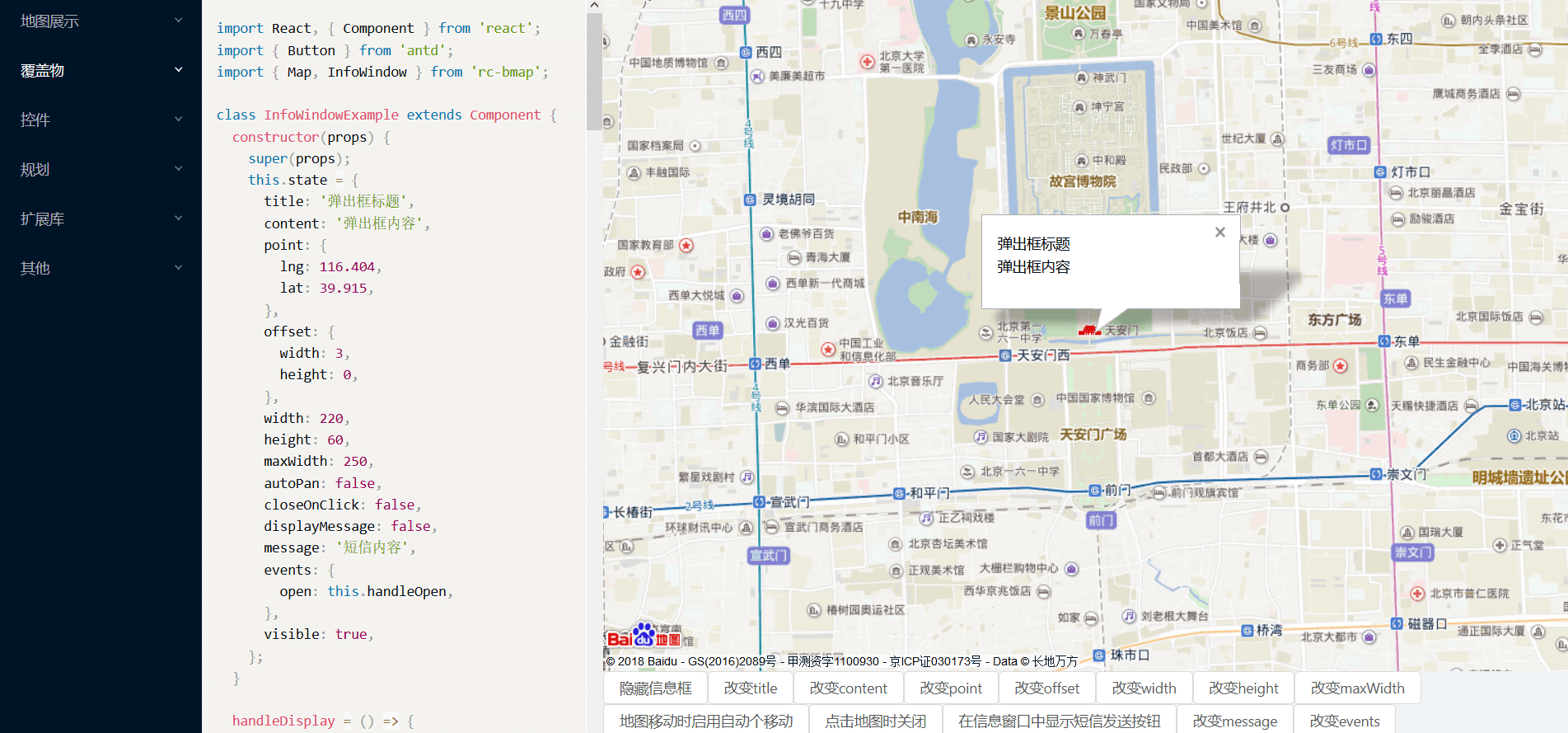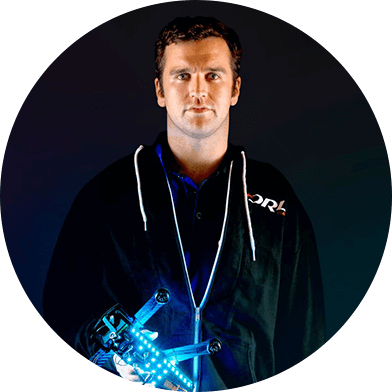每天推薦一個 GitHub 優質開源項目和一篇精選英文科技或編程文章原文,歡迎關注開源日報。交流QQ群:202790710;微博:https://weibo.com/openingsource;電報群 https://t.me/OpeningSourceOrg

今日推薦開源項目:《React+百度地圖=React BaiduMap》傳送門:GitHub鏈接
推薦理由:在有些時候你興許需要一個地圖放在你的網頁上,如果你剛好正在使用 React ,那麼這個 React 的百度地圖組件就可以幫上你的忙了。你可以像對待一個 React 的組件一樣操作它,而且所有的百度地圖 API 都還可以調用,如果有需要你肯定該考慮這個。

今日推薦英文原文:《In Ten Years: The Future of AI and ML》作者:Foursquare
原文鏈接:https://medium.com/foursquare-direct/in-ten-years-the-future-of-ai-and-ml-fa68a527f378
推薦理由:十年之後,AI 和機器學習將會變成什麼樣子呢?
In Ten Years: The Future of AI and ML
When you take a minute to stop and look around, the technological advancements of today could be perceived as something out of a futuristic novel. Cars are learning to drive, hands-free devices can turn on your lights or toast your bread, and flying drones are circling the skies. This is 2018. While the manifestation of Artificial Intelligence (AI) and Machine Learning (ML) haven』t been realized, impressive progress has certainly been made.
As a location technology platform, we at Foursquare understand the power that something like AI and ML can have on the way people live and move throughout the world. Take for instance, our own Pilgrim SDK technology, the most sophisticated contextual awareness engine. Our robust understanding of where consumers go in the physical world via Pilgrim was developed using machine-learned algorithms, enabling brands to gain a profound understanding of their audience, drive foot traffic and increase engagement. Technology can change the way people interact with their surroundings forever.
This led us to ask, what can we do today that we couldn』t do 10 years ago? And what does the future look like from here? While none of us have a crystal ball, that doesn』t stop us from making educated predictions. We sat down with a group of hand-selected fellow tech experts spanning a myriad of data-driven industries and gave just one prompt:
In 10 years, AI/ Machine Learning will…
Here』s what they said. (Spoiler: You』re going to want the future to hurry up.)
1) Increase security

「Drones are going to change the way we live. I think of drones now as the equivalent of what phones were in the 90』s. Drones open up the ability to transport things through the air over short distances and in complex spaces, which is just not something we have another solution for today. Whether that』s package delivery, or emergency response, or delivering medical products urgently — all of those things become possible immediately. One of the amazing things about drones is that they fly. The idea that you can have something routinely inspect places that are hard to look at will make our world dramatically safer. It will be another way in which drones will help us realize this future vision a lot of us have of what』s going to happen — this network of autonomous drones flying around, taking care of things, and interacting with us. It will bring an immediacy to what they』re doing in the same way a smartphone in your hand made that change so readily apparent.」 - Nicholas Horbaczewski, CEO & Founder at the Drone Racing League
2) Generate new services (and potentially social issues)

「Artificial intelligence really means the extension of our ability to solve problems and to generate new ideas. It』s quite possible that 10 years will get us to an inflection point, after which we will see advancement at an unprecedented rate. AI and and robotics will have been assimilated into business operations and will be having a major impact on efficiency in organizations. Entirely new AI-based products and services will have created new consumer and industrial markets. At the same time, AI will bring along new challenges, perhaps most importantly increasing inequality and possibly unemployment as routine, predictable types of work are automated. There will also be critical challenges in areas like privacy, security, algorithmic bias and military applications of AI. Ten years from now, a vibrant debate about these issues will have likely come to the forefront of our political and social discourse. Finding a way to address these issues on behalf of humanity will soon be one of the defining challenges for the coming decades.」 - Martin Ford, Futurist & NY Times bestselling author of Rise of the Robots
3) Empower businesses

「The consumer-facing applications of AI and ML feel stuck to me, relegated to doing what humans can already do or, more critically, only what we trust them to do. Over the next ten years, I think we』ll start seeing trust barriers decrease, and as a result, dependence on AI powered algorithms and machines will increase. We started learning this lesson years ago building our consumer applications. If you』re going on a trip to Paris, for example, you』d trust almost anything your friend recommends, even if they』d only been to Paris once for a short trip, just because they said so. In the same situation, we use sophisticated ML techniques to deliver extremely personalized recommendations — but algorithms don』t get the benefit of trust like a friend. In order to gain user trust, we had to try and explain the what the AI 『thought,』 which defeats the power of it. Today, these ideas are starting to grow in acceptance and expectation, as brands such as Foursquare continue to use ML to build location-aware technology that push the boundaries of mobile capabilities—and gives developers, analysts, marketers and beyond a unique way of understanding and interacting with their users. The industry excitement around this technology and the rich experiences built on top of it I hope and believe represent the tides of change.」 - Matthew Kamen, SVP of Engineering at Foursquare
4) Improve healthcare

「When it comes to healthcare, there』s a lot machines can do to help the doctor. I don』t see a future where we actually don』t have doctors guiding, but a lot of the busy work doctors have to do is better done using artificial intelligence. If you think about a doctor』s career, thirty or forty years, the number of patients you can see during that time period is very limited. Many doctors are burnt out, overworked — it』s a serious issue. They also don』t have time to keep themselves up to date on the most recent research, treatment techniques, and advancements in medication. Machines can play a very important role here. Artificial intelligence can access a much larger set of patient data of how they were treated and what the outcomes were. You can imagine machines being in a much better position, because machines can start doing the busy work around the diagnosis and humans can actually interact with the patient and work with artificial intelligence to improve outcomes. That, in my mind, is super exciting.」 - Serkan Kutan, CTO at Zocdoc
5) Facilitate sustainability

「Artificial intelligence is going to impact every single industry and everything that we do. On a bigger level, areas like sustainability, climate change, environmental issues — they are becoming more at the forefront of everybody』s minds as we move more into the 21st century and think about the huge challenges we need to tackle like population increases, urbanization, and energy. There』s so many different areas within urbanization that touch on city planning. We can do that much more efficiently once we can track the movements of residents within cities, and once we can map which areas we can use to improve the density of cities. In the AI floodgates conversation, I』ve seen in the past six months or so a lot more companies wanting to focus on AI instead of just thinking about the quick goals of making workloads and businesses more efficient. If we look at the bigger picture of AI for good, then it connects us with more purpose and meaning.」 -Nikita Johnson, Founder of RE.WORK
6) Blend the lines of digital and physical

「Personally, I』m most interested in furthering spatial computing. When you live in a world where your computer is not just bound to a specific device, but can be anywhere you want to put it, it means computers will have to react to humans much more intelligently than they do now. Right now, if you do something wrong today, your computer throws up an error, you close it, and that』s it. But imagine if, for example, you had a full-scale game that was in your apartment and something went wrong. Where does the dialog box go then? Should there be one at all? There are a lot of open questions around how humans will want to interact with their computers. For example, Foursquare did a really great job with having with having location-based notifications designed to give you the right information at the right time. There are many, many applications that should be making use of that kind of awareness today. And in the future, having these really intelligent ways of surfacing information are going to move from 『nice-to-haves』 to essentials. And I, for one, will be looking forward to that — because I want computers to be smarter already.」 - Timoni West, Director of XR Research at Unity Technologies
7) Make us smarter

「Computational power is going to continue to increase, giving us more power to train our models. The amount of data being created is going to continue to grow exponentially as well allowing us to monitor more elements in our platforms and our world. Combine the two together with AI, and it gives us the ability to be able to make more intelligent projections on future behavior and events as you can train more intelligent models and knowledge systems. However, in the financial services industry, regulatory pressures could actually curb the power of AI to some degree by siloing off information used to train models, thus cutting off one source of fuel AI needs to thrive— slowing its ability to make an impact. I believe people』s worries about AI becoming all powerful are unfounded. Ultimately, training an AI platform — it is very much like molding a child. If you treat it the right way and teach it the right things, train it to know what』s right and wrong, it will inherently grow up to become a productive member of society that cares about people and the future. Just like any one of us.」 - John Stecher, Group Managing Director at Barclays Investment Bank
8) Inspire artists

「In ten years, there will be some sort of algorithm involved in most decisions made, big or small. Artists like myself can get involved in artificial intelligence. While such a mission may sound daunting, it』s really about starting to use it, exploring the capabilities of algorithms as well as what they can express through AI systems. I encourage artists to try to use AI to create something beautiful and expressive, the way they would with any other medium. However, I never want to see the technology become the artist. We must think about AI as a tool for the augmentation of human thought and creation and make every effort not to turn the reigns of creativity or ethics over to the machines. When deploying AI (individuals, businesses, governments, etc.) must consider how to maintain a sense of civility, creativity, and equity in the AI system being released into the world. For industries, the driving question is how can AI be used to increase productivity while respecting human diversity, dignity, and our cultural specificities?」 -Stephanie Dinkins, Transdisciplinary AI Artist
每天推薦一個 GitHub 優質開源項目和一篇精選英文科技或編程文章原文,歡迎關注開源日報。交流QQ群:202790710;微博:https://weibo.com/openingsource;電報群 https://t.me/OpeningSourceOrg
